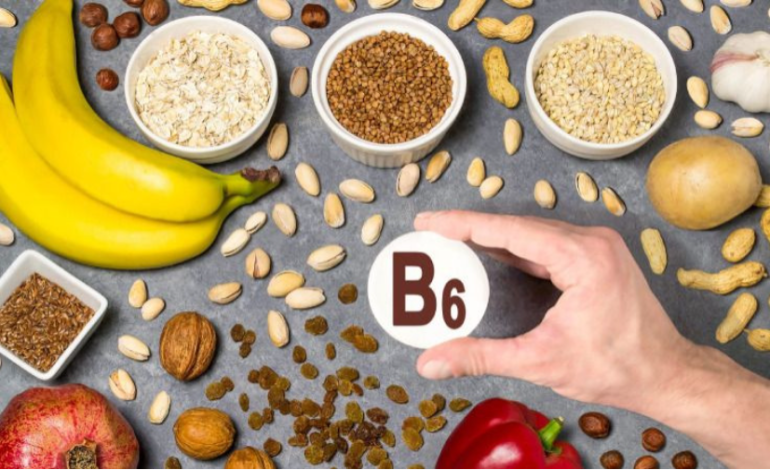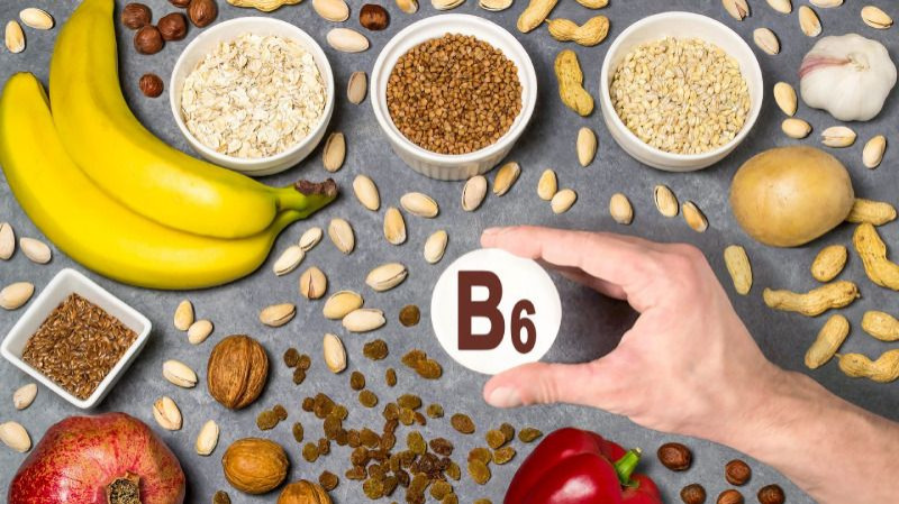
Causes, Symptoms, and Health Risks of Vitamin B6 Deficiency

Vitamin B6, also known as pyridoxine, is an essential water-soluble vitamin that plays a crucial role in many processes in the body. However, your body can’t produce it on its own, so it’s important to get enough through your diet or supplements.
How can you tell if you’re getting enough vitamin B6? What are the causes and signs of vitamin B6 deficiency? Let’s break it down.
What does vitamin B6 do? Vitamin B6 mainly exists in the body as pyridoxal 5’ phosphate (PLP), which helps over 140 enzymatic processes. These include breaking down proteins and fats, maintaining healthy blood sugar levels, supporting your immune system, producing hemoglobin, aiding cognitive development, and ensuring your nervous system functions properly.
Causes of vitamin B6 deficiency A lack of vitamin B6 is uncommon in developed countries, especially if you’re eating a balanced diet. However, it can still happen in rare cases. Some conditions that can lead to low B6 levels include malabsorption disorders, alcoholism, certain medications, kidney disease, autoimmune disease, thyroid problems, and congenital metabolic disorders.
Symptoms of vitamin B6 deficiency When your body doesn’t get enough vitamin B6, it can show in various ways. Early signs might be subtle, but if the deficiency continues, it could lead to:
- Fatigue
- Difficulty concentrating
- Irritability
- Headaches
- Swollen, sore tongue (glossitis)
- Inflammation of the lips (cheilitis)
- Seizures
- An itchy, flaky rash (seborrheic dermatitis)
- Confusion or altered mental state
In infants, the signs could be more serious, including seizures and anemia.
Health risks of vitamin B6 deficiency Chronic vitamin B6 deficiency can lead to several health problems. It has been linked to a higher risk of heart disease and some cancers. Additionally, people with seizure disorders, especially children who don’t respond well to seizure medications, should be tested for B6 deficiency. This vitamin is also important for female reproductive health and is sometimes used to manage morning sickness during pregnancy (under medical supervision).
Where can you get vitamin B6? Vitamin B6 is found in many foods, both animal and plant-based, so you can easily get enough by eating a balanced diet. Some of the best sources include:
- Fish
- Beef liver
- Poultry
- Organ meats
- Potatoes and starchy vegetables
- Non-citrus fruits
- Fortified cereals
- Chickpeas and other legumes
How much vitamin B6 do you need? The recommended daily intake varies by age and gender:
- Teen and adult males: 1.3 mg per day (1.7 mg for seniors)
- Teen and adult females: 1.3 mg per day (1.5 mg for seniors)
- Pregnant and breastfeeding women: 1.9-2.0 mg per day
If you’re experiencing deficiency symptoms, your doctor may recommend a B6 supplement, available both as a stand-alone product or in multivitamins. The most common form in supplements is pyridoxine, though PLP supplements are available too.
Vitamin B6 toxicity and overdose Since B6 is water-soluble, your body usually eliminates excess through urine, so toxicity from food sources is very rare. However, taking large amounts of B6 supplements—around 1-6 grams per day—can cause uncomfortable symptoms such as:
- Loss of muscle control
- Nausea
- Heartburn
- Sensitivity to light
- Numbness or reduced skin sensitivity to temperature and pain
- Skin lesions
If you experience these symptoms after taking high doses of B6, it’s important to seek medical help.
Can vitamin B6 make you sleepy? Vitamin B6 plays a role in producing melatonin and serotonin, hormones that help regulate sleep and mood. Maintaining healthy levels of vitamin B6 can support better sleep and improve your overall mood.





